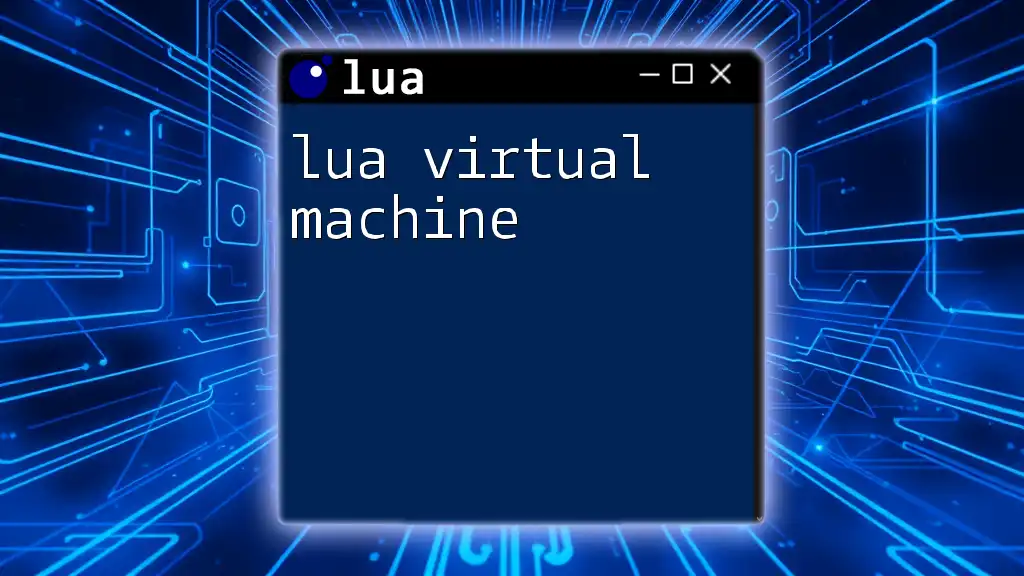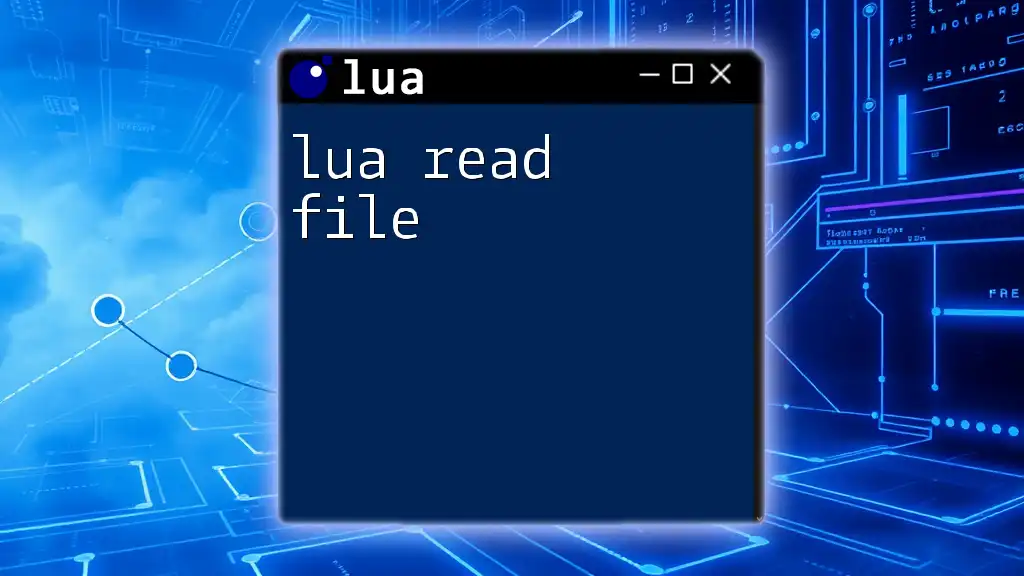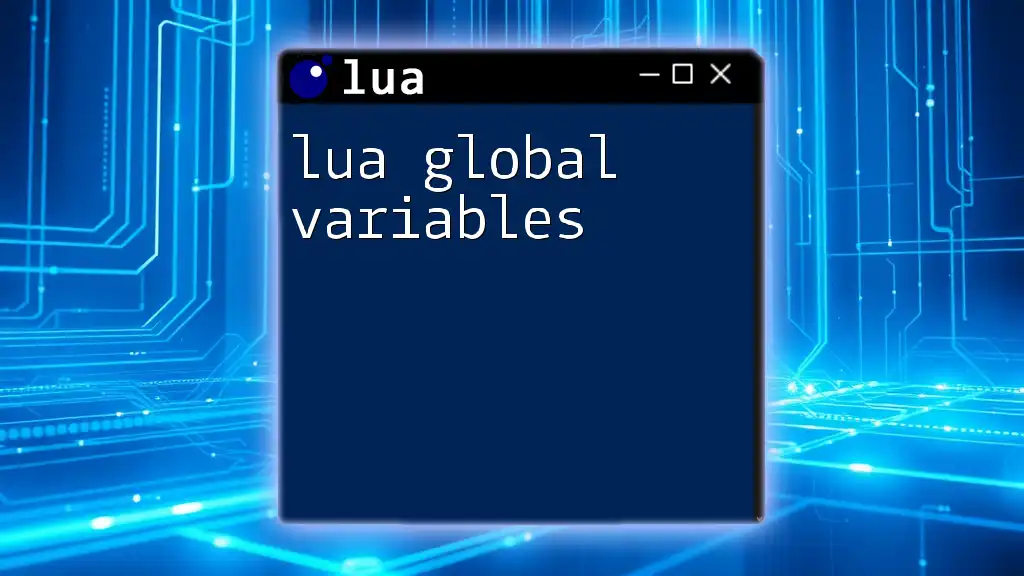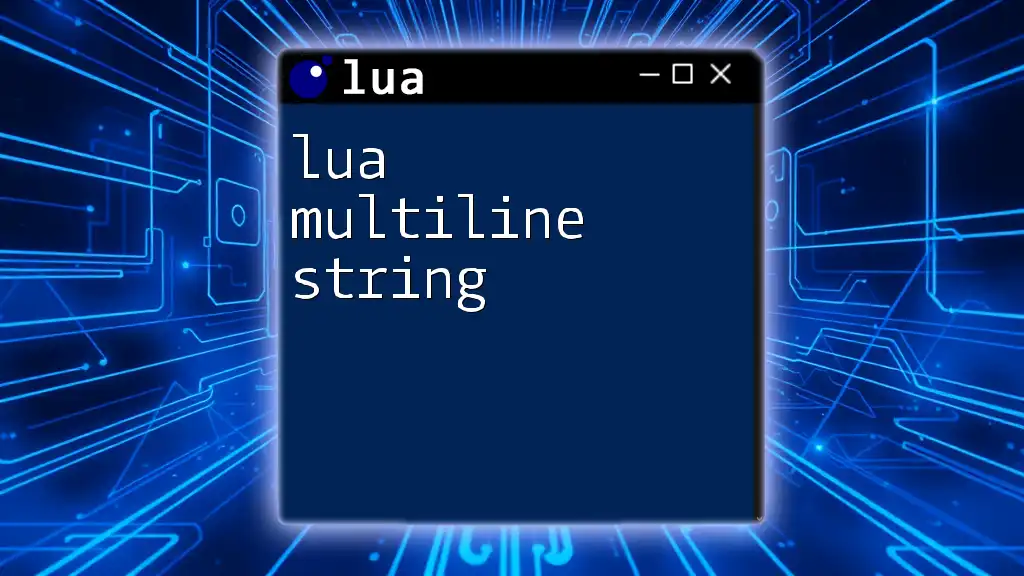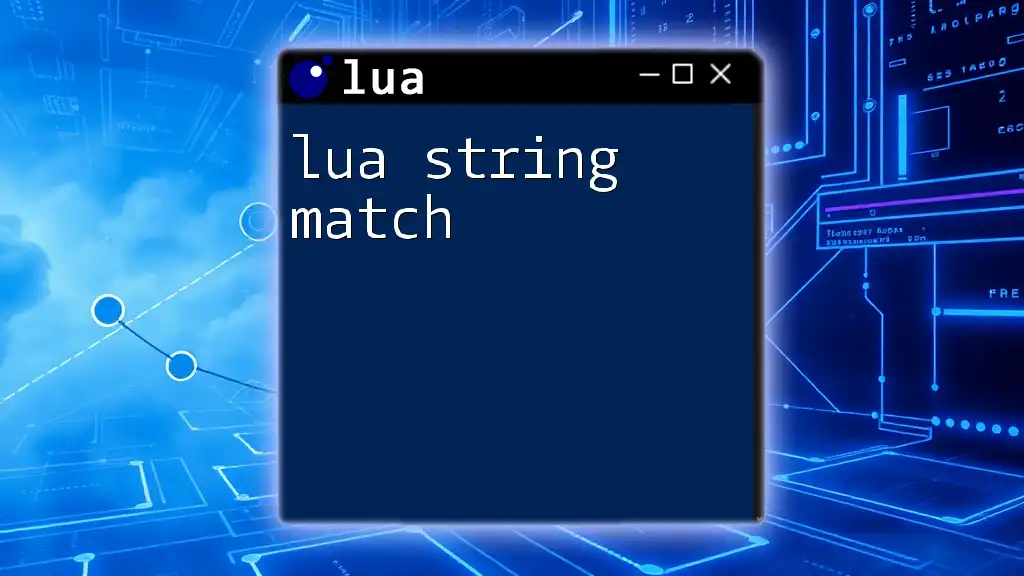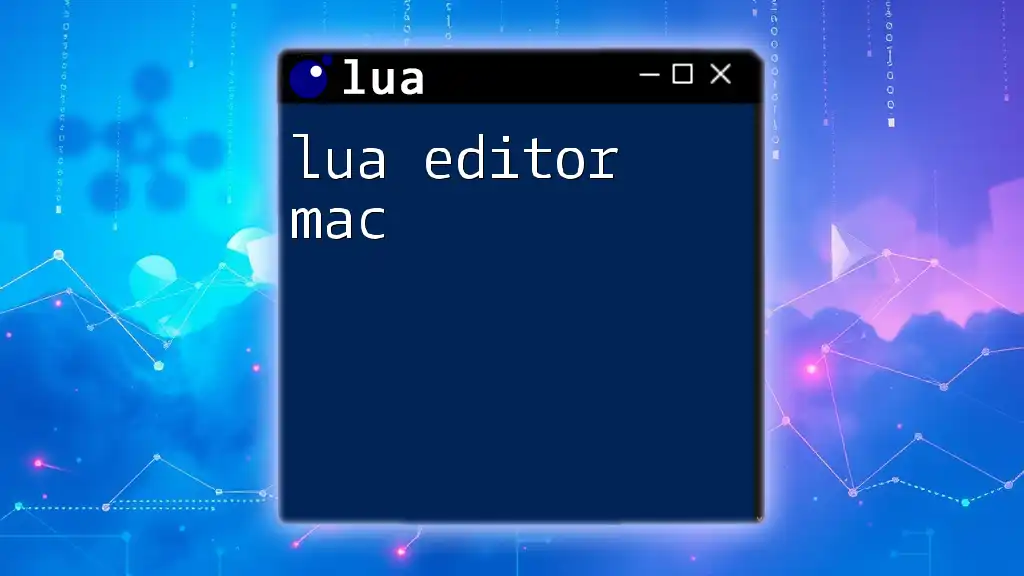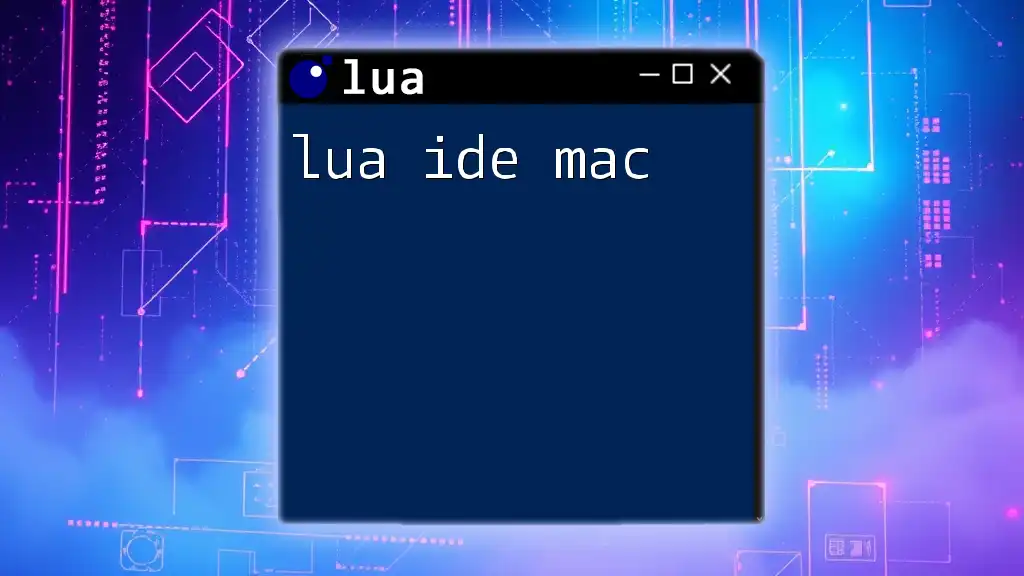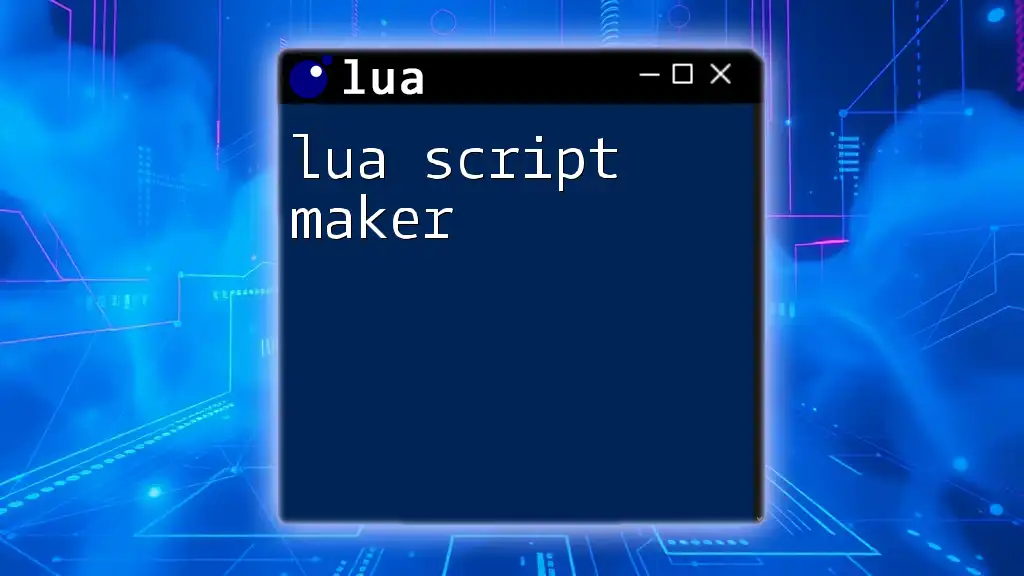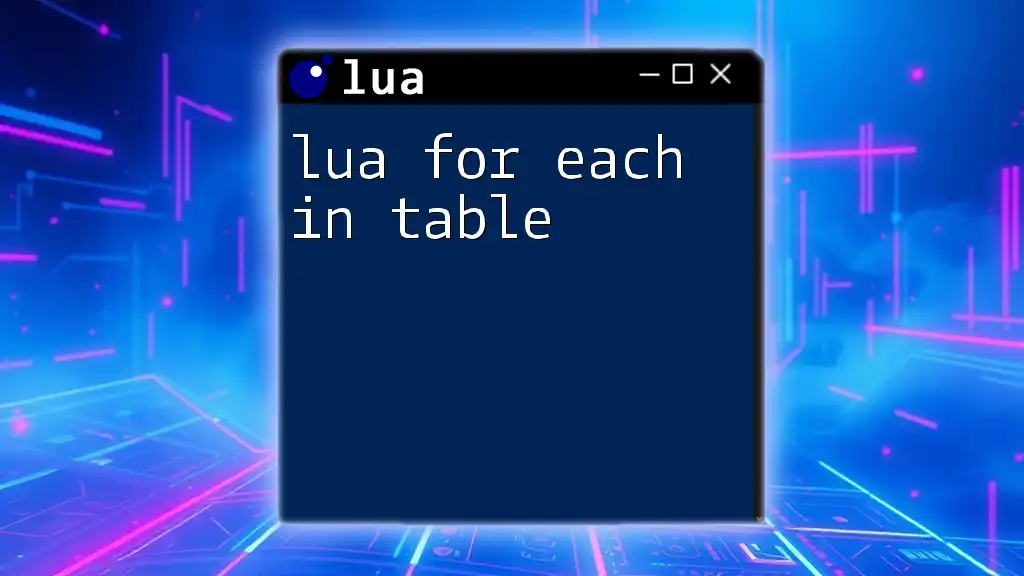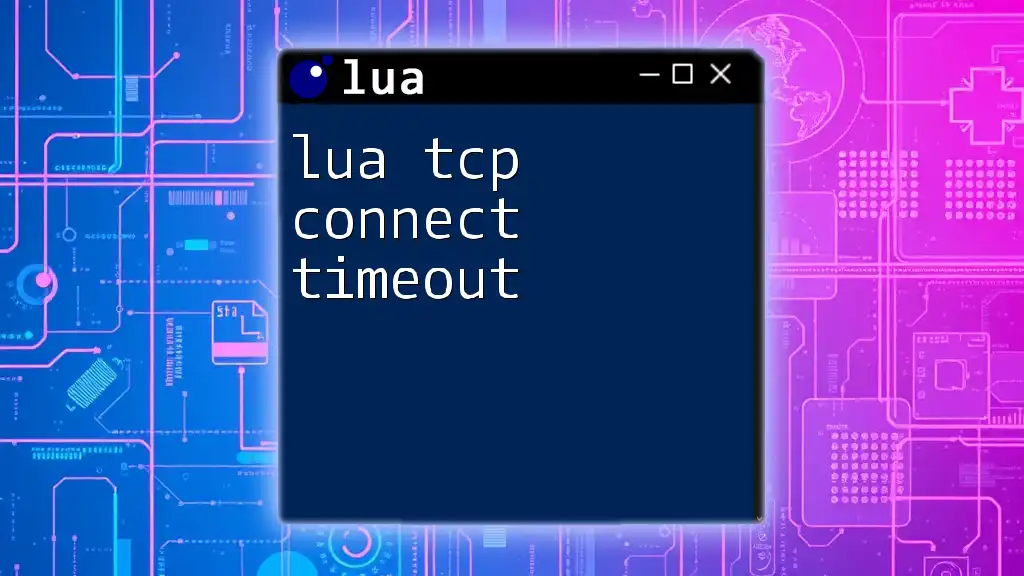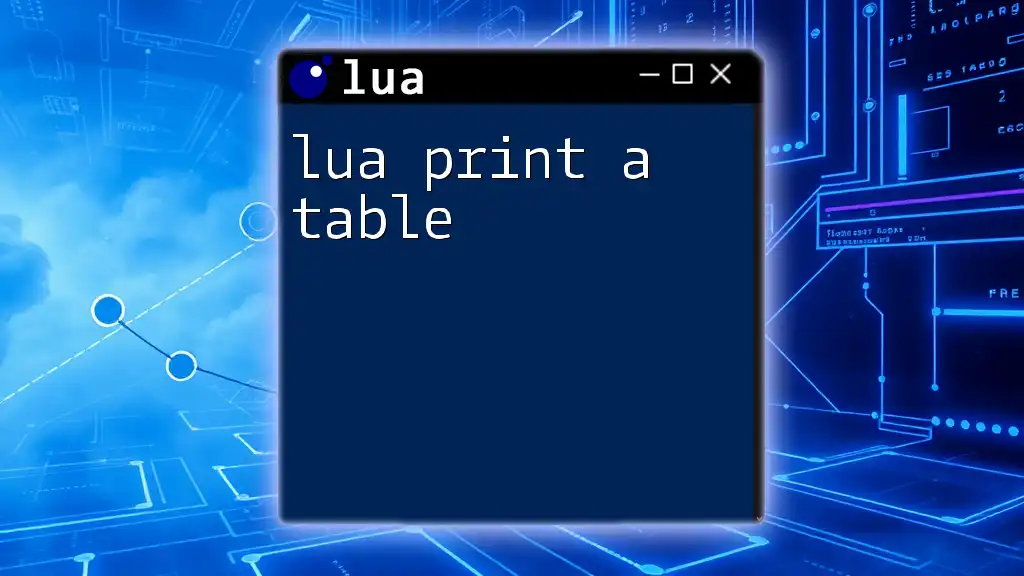The Lua Virtual Machine (LVM) is an integral component of the Lua programming language that executes Lua bytecode, enabling efficient script execution through a lightweight and flexible interpreter.
Here’s a simple Lua code snippet demonstrating a basic function definition and usage within the Lua Virtual Machine:
function greet(name)
return "Hello, " .. name .. "!"
end
print(greet("World")) -- Outputs: Hello, World!
What is the Lua Virtual Machine?
The Lua Virtual Machine (VM) is a crucial component of the Lua programming language that executes Lua bytecode. It acts as an interpreter that bridges high-level Lua scripts with low-level system calls, allowing for efficient execution of code. Unlike many other virtual machines, such as those used in Java or Python, Lua’s VM is designed to be lightweight and highly optimized for performance, making it an ideal choice for embedded systems and gaming applications.
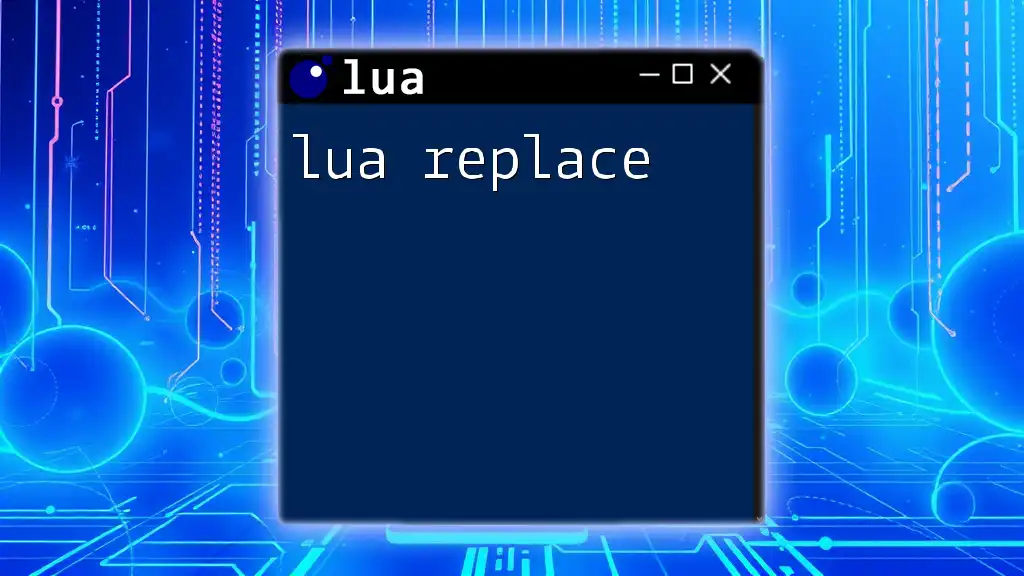
How the Lua Virtual Machine Works
The Lua VM operates on a stack-based architecture, where all operations occur via a stack that holds temporary values. This design minimizes overhead and simplifies the execution process while maintaining speed and efficiency.
Structure of the Virtual Machine
-
Stack-Based Architecture: The VM manages a stack to which values can be pushed and popped as needed. When a function is called, Lua pushes its arguments onto the stack and pops them off when the function returns.
-
Registers and Memory Management: In addition to the stack, the Lua VM uses a set of registers for variable storage and fast access to values during execution.
Execution Model
The Lua VM primarily interprets bytecode instead of source code, which allows for rapid execution after an initial compilation phase. The VM utilizes a simple yet efficient execution model, whereby instructions are fetched, decoded, and executed in a streamlined loop. Lua can also theoretically enhance performance using Just-In-Time (JIT) compilation, although this functionality requires external libraries.
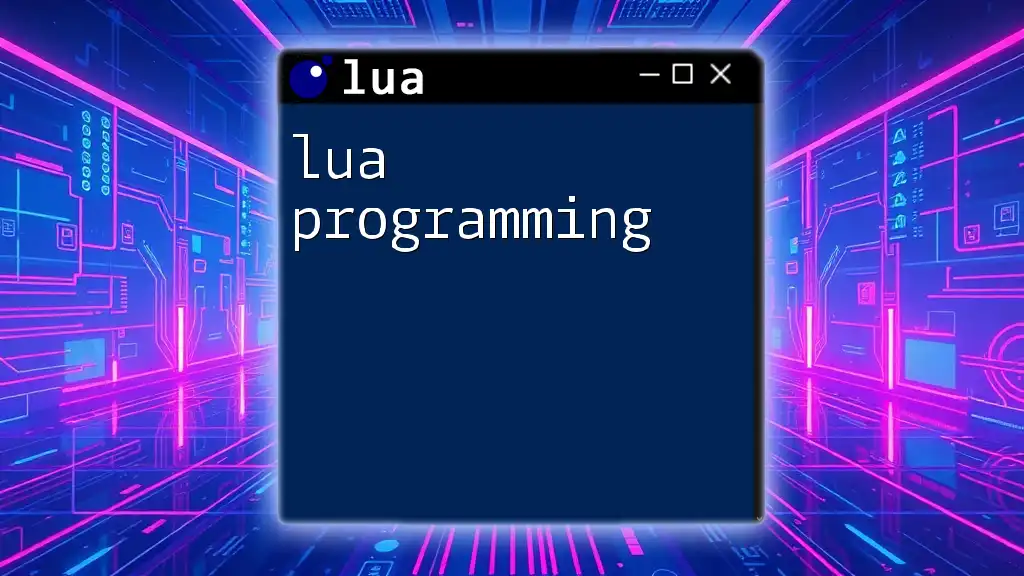
Key Components of the Lua Virtual Machine
Lua Stack
The stack is a core feature of the Lua VM. It facilitates the management of function calls and control flow.
-
Lua Stack Basics: Each function call utilizes the stack to store arguments and return values. When a function is invoked, parameters are pushed onto the stack, and on return, the result is also sent back through the stack.
-
How the Stack Facilitates Function Calls: Each call reserves a specific section of the stack for its local variables, ensuring that values do not collide with those of other active functions.
Example: Pushing and Popping Values
function add(a, b)
return a + b
end
local result = add(2, 3) -- Stack handles 2 and 3 as inputs
print(result) -- Outputs: 5
Registers
Registers in the Lua VM are designed for fast access and manipulation of frequently used values. Instead of repeatedly fetching values from the stack, the VM uses registers to hold them for quicker access.
-
What are Registers?: Registers can be thought of as temporary storage areas that the VM uses during execution. They significantly speed up operations since access is faster than retrieving from the stack.
-
Usage in Lua Operations: For example, in loops or recursive function calls, registers store loop counters or intermediate results.
Code Example: Register Operations
local x = 10 -- a value that might be kept in a register
local y = 20 -- another value in a register
local sum = x + y
print(sum) -- Outputs: 30
Garbage Collection
Lua employs an automatic garbage collection mechanism that efficiently manages memory.
-
Explanation of Lua's Garbage Collector: The garbage collector identifies and reclaims memory that is no longer in use, thus preventing memory leaks.
-
How it Works within the VM: The garbage collector operates in the background, periodically checking the stack and memory for unreferenced objects.
Code Snippet: Manually Triggering Garbage Collection
collectgarbage() -- Force the garbage collector to run
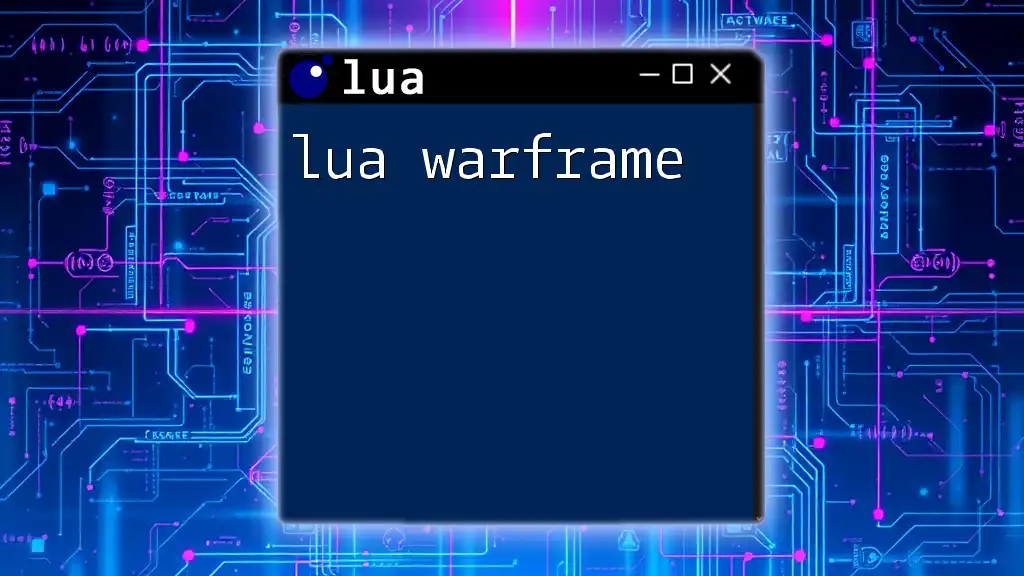
Bytecode in Lua
Bytecode is the compiled version of Lua source code, which the Lua VM executes. It allows for faster execution compared to interpreting source code.
-
What is Bytecode?: When you run a Lua program, the interpreter first compiles it into bytecode, which is an intermediate representation. The Lua VM can then efficiently execute this bytecode.
-
Advantages of Using Bytecode: By compiling to bytecode, Lua takes about 50% less time to execute than it would if it were interpreting from the original source code. This is particularly advantageous in performance-sensitive applications.
Example: Compiling Lua Code to Bytecode
To convert a Lua script to bytecode, you can use the following command:
luac -o myscript.luac myscript.lua
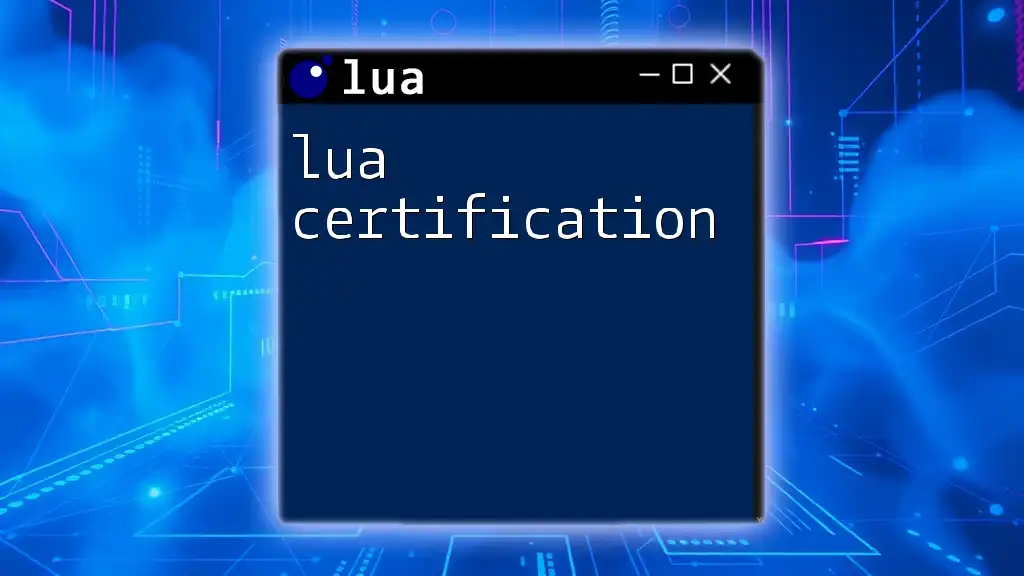
The Role of the Lua API
The Lua C API exposes functionalities that allow developers to integrate C code with Lua scripts.
-
Introduction to the Lua C API: It provides functions to create Lua states, load and execute Lua scripts, and manipulate Lua data structures directly from C.
-
Functions Exposed by the Lua API: Key functions include `luaL_loadstring`, `lua_pcall`, and `lua_pushnumber`. These functions allow embedding Lua scripts and interacting with Lua’s stack directly from a C environment.
Example: Integrating C Code with Lua
Here's a basic example of how to call a Lua function from C:
#include <lua.h>
#include <lauxlib.h>
#include <lualib.h>
int main() {
lua_State *L = luaL_newstate(); // Create a new Lua state
luaL_openlibs(L); // Load the standard libraries
luaL_dofile(L, "myscript.lua"); // Execute a Lua script
lua_getglobal(L, "myFunction"); // Get a Lua function
lua_pushnumber(L, 10); // Push an argument
lua_pcall(L, 1, 0, 0); // Call the function with 1 argument
lua_close(L); // Close the Lua state
return 0;
}
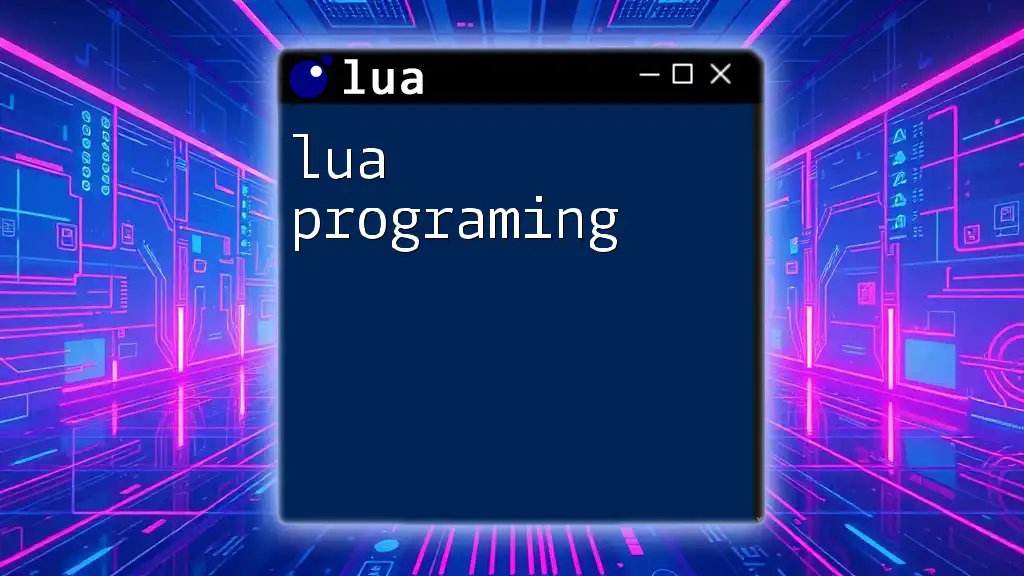
Embedding the Lua Virtual Machine
How to Embed Lua in Your Application
Embedding Lua into an application allows you to leverage Lua’s scripting capabilities without sacrificing performance.
- Setting Up the Lua VM: This involves initializing a Lua state and loading necessary libraries to enable scripting with Lua.
Example: Simple Lua Integration
lua_State *L = luaL_newstate();
luaL_openlibs(L);
luaL_dofile(L, "script.lua");
Benefits of Embedding Lua
Embedding Lua grants applications scriptability, allowing users to modify and add features dynamically without changing the underlying code. Moreover, Lua's lightweight footprint ensures that it doesn’t heavily impact the overall performance of the application.
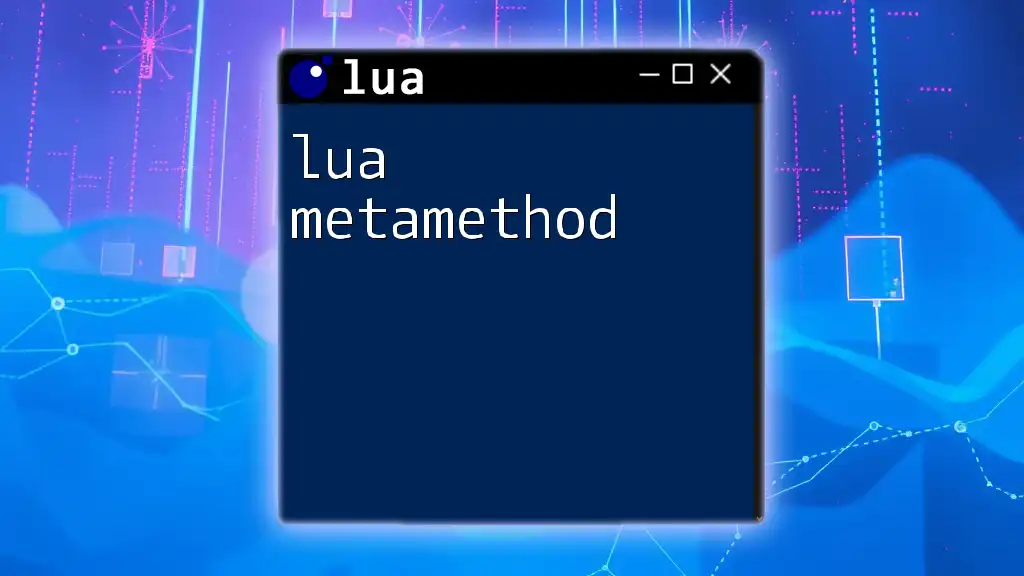
Performance Considerations
Measuring the performance of Lua code can be crucial for application optimization.
-
Measuring Performance of Lua Code: Using functions such as `os.clock()` will help gauge execution time, allowing you to identify bottlenecks.
-
Common Optimization Techniques:
- Efficient Use of the Stack: Minimize stack usage by limiting the number of local variables.
- Minimizing Garbage Collection: Optimize memory use to reduce the frequency and duration of garbage collection cycles.
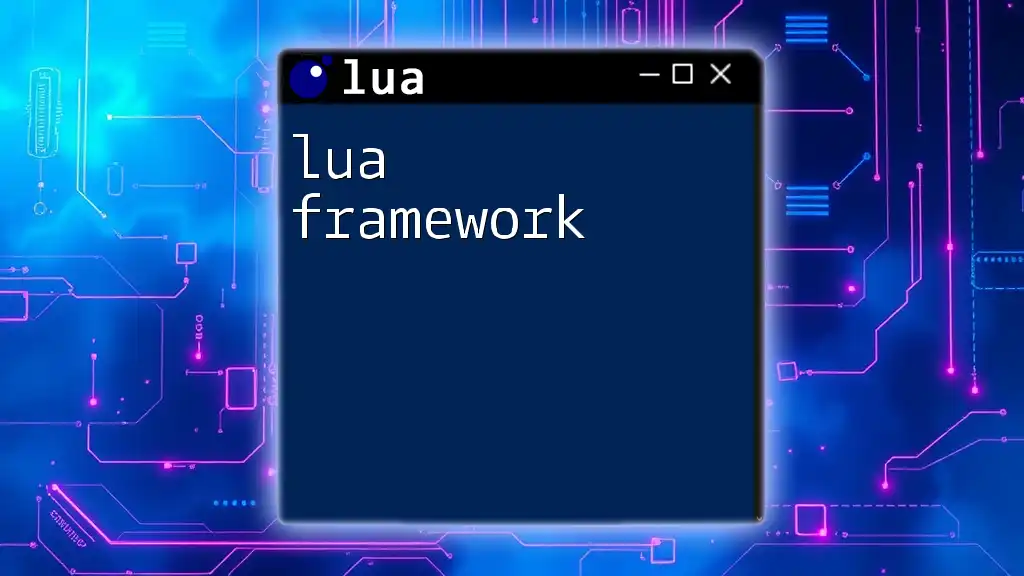
Practical Applications of Lua Virtual Machine
The Lua VM is widely used across various domains, particularly in game development.
-
Use Cases in Gaming Development: Lua is commonly embedded in game engines for scripting game logic, allowing level designers to modify game behavior without recompiling the entire application.
-
Applications in Web Development: Lua is also used in web servers like Nginx for dynamic content generation.
Example: Using Lua for Scripting in Game Engines
Lua can be used to define game behaviors like so:
function onPlayerJoin(player)
print(player.name .. " has joined the game.")
end
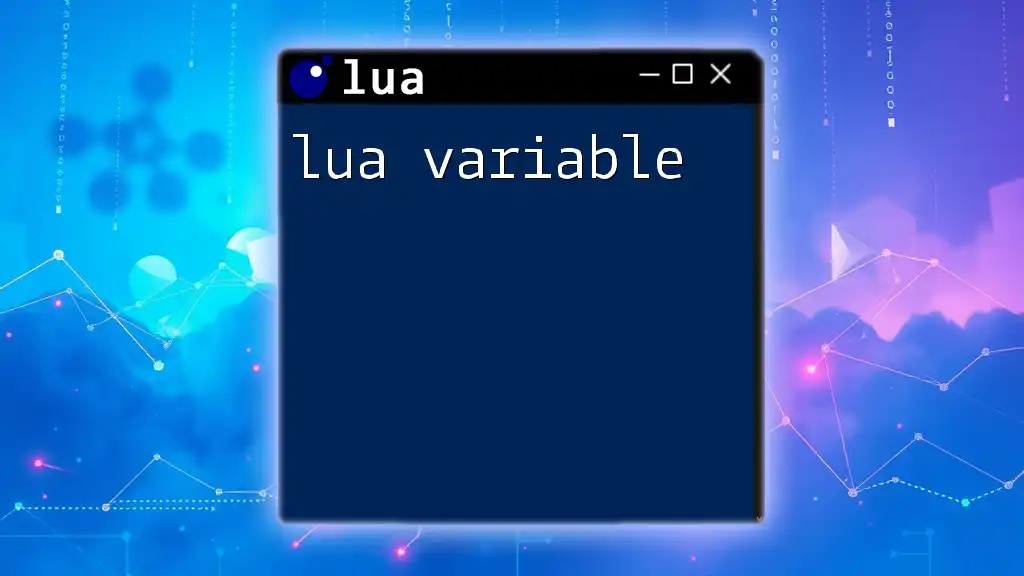
Conclusion
Understanding the lua virtual machine deepens your grasp of how Lua operates and why it is an optimal choice for scripting in various applications. Its efficiency, coupled with its easy integration capabilities, allows developers to enhance their applications effectively.
Call to Action: Dive deeper into Lua by experimenting with its features and start harnessing its power for your projects today!
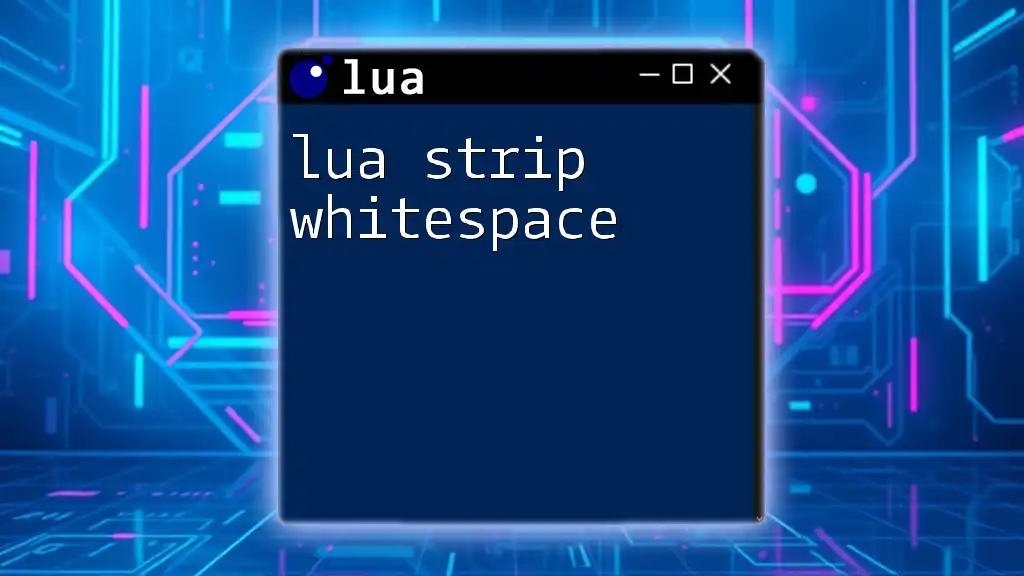
Additional Resources
- Explore foundational understanding with relevant books and online courses.
- Visit the [Official Lua Documentation](https://www.lua.org/manual/5.1/) for comprehensive insights.
- Engage with community forums for peer support and advanced topics.
By utilizing this guide, you're well on your way to mastering the Lua virtual machine and its myriad capabilities!

